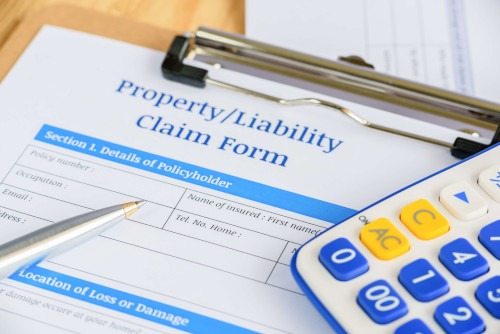
Life is picture-perfect in the Sunshine State—until hurricane season hits. Flooding, storm surges, toppled trees, and toxic mold infiltration are just some of the types of property damage in Florida that can destroy the home or business you invested so much time and energy into making yours.
Extreme damage requires you to file a property damage claim. But what about cases that are less clear-cut? Knowing when to file a property damage claim—and the proper steps to take—is crucial information that can save you time, money, and a great deal of aggravation.
Why Your Timing of Filing a Property Damage Claim Is Important
Theoretically, you have years to file a property damage claim. But waiting until the official statute of limitations runs out is not a good idea. For one thing, delaying when you file a claim may raise red flags with your insurer. Moreover, if you delay, you run the risk of missing policy deadlines. In some cases, you could be forced to forfeit a claim.
When you experience property damage, you should call the insurance company as soon as possible to announce your intent to file a claim. If you don’t speak with a live person at that time, the insurer has 14 days to contact you.
After establishing initial contact, you’ll need to file a proof of loss statement by the deadline specified within your policy. Your insurer must begin the investigation within 10 days of receiving this document.
The insurance company has 90 days from the time it completes the investigation to notify you of whether it accepts or denies your claim. If the insurance company decides to compensate you for the damages, it has 20 days from the settlement date to make good on the decision.
An insurer that doesn’t meet these deadlines may be acting in bad faith. Consulting with a property attorney can help you understand the implications of this behavior and advise you on the best way to proceed.

Getting to Know Your Insurance Policy
The most important action you can take as a homeowner or business owner to protect your property occurs long before filing a property damage claim. The simple act of learning what’s in your insurance policy can mean the difference between successfully filing a claim and having to pay out of pocket for expenses.
- Basic policiescover your home or place of business for certain designated perils only, such as fire, hail, explosions, and lightning damage. Basic policies usually cover loss or damage of personal property and the structures that house your personal property or business equipment. Depending on the policy, many exclusions may not be covered.
- Commercial package policies (CPPs) are for business owners who need a higher level of coverage for their commercial property insurance policy. A CPP allows you to add certain exclusions.
- A business owner’s policy combines hazard protection with liability coverage, protecting a business owner in the event that someone suffers injuries on the premises.
It’s important to understand policy exclusions to get a full picture of property damage coverage. Exclusions are perils not covered by the policy. You need supplemental insurance in order to receive coverages for these perils. In Florida, common exclusions are flood, ordinance or law coverage, earthquakes and volcanic eruptions, spoilage coverage (for businesses with perishable stock), and coverage in case of damage due to power interruptions.
You should also understand that insurers may view some perils as the natural consequence of others. If your policy doesn’t cover flood damage in Boca Raton, it will also not cover the toxic mold infiltration that results from flood damage.
Statute of Limitations in Florida for Property Damage Claims
According to Chapter 95 of the 2020 Florida Statutes, Floridians typically have two years from the date their home or business was damaged to file a claim. The two-year statute of limitations covers most types of property damage, including theft and vandalism.
How long do you have to file a property damage claim when a hurricane or windstorm destroys your home, though?
You may not realize that the statute of limitations for these specific events is different. Chapter 627 of the 2020 Florida Statutes states that you must submit a claim to the insurer “within [three] years after the hurricane first made landfall or the windstorm caused the covered damage.”
Finally, as a property owner, you’re entitled to an extra year if the insurer acts in bad faith after receiving the initial claim. Some insurers even cancel a policy in order to avoid compensating you for damage. If your insurance company denies your claim, offers a lowball settlement, or cancels your policy, the company may be in breach of its contractual responsibilities. In that case, you have five years from the onset of damage to file a claim.

When Should You File a Property Damage Claim?
It really depends on the specific details of your insurance policy. If your deductible is $2,000, and the damage comes to $2,500, it may not make sense to file a property damage claim. You have to factor in things like increases to your premium over time before deciding if it’s worthwhile to seek compensation.
It goes without saying that you won’t be able to collect a dime for an event you aren’t insured against. Once again, the most important thing you can do is read your policy carefully and understand the exclusions.

Is Your Insurance Company Giving You the Runaround?
Was your property damage claim ignored or denied? Do you suspect your insurer is acting in bad faith? You’re not alone. GED Lawyers has recovered millions of dollars in damage for our clients. We have the expertise and clout to stand up to insurance companies and know exactly how to get their attention. Want to speak to a property attorney about your case? Please contact us at 561-995-1966 or toll-free at 844-443-3529 to schedule your free case review today.
